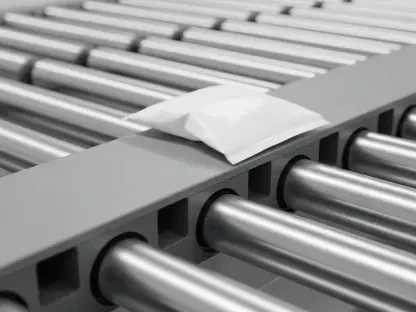Short introduction We’re thrilled to sit down with Marco Gaietti, a seasoned expert in business management with decades of experience in strategic management, operations, and customer relations. Today, we’re diving into a topic that resonates with so many of us—time anxiety. In this conversation, Marco shares his insights on the fear of time slipping away, the daily struggle to keep up, and practical strategies to reclaim control over our most precious resource. We’ll explore the emotional and practical dimensions of time stress and uncover actionable ways to live with more intention and ease.
Can you explain what time anxiety means to you in simple terms, and how you first became aware of it as a real challenge for so many people?
Time anxiety, to me, is that nagging feeling that time is either running out or slipping through your fingers. It’s the stress of not having enough hours in the day or the deeper worry that you’re not making the most of your life. I first noticed this as a widespread issue while working with high-performing teams in my consulting career. So many talented individuals were burning out, not because they lacked skill, but because they were haunted by this sense of urgency—feeling like they had to do everything now or risk falling behind. It struck me how universal this struggle is, cutting across industries and personal lives.
How would you describe the difference between existential time anxiety and the kind that shows up in our daily routines?
Existential time anxiety is the big-picture fear—the realization that life is finite and you might not achieve your purpose or leave a legacy. It’s often tied to regrets about the past or dread about the future. On the other hand, daily routine anxiety is more immediate. It’s the frustration of a packed schedule, the pressure to check off every task, or the inability to unplug from work. While the existential kind can weigh on your soul, the daily version hits you in the moment, making you feel overwhelmed by the sheer volume of things demanding your attention.
Focusing on existential time anxiety, why do you think so many of us grapple with this deep fear that time is running out?
I think it comes down to our human nature. We’re wired to seek meaning and purpose, but we’re also painfully aware that our time is limited. Society doesn’t help—it often pushes us to measure our worth by achievements or milestones, so we panic if we haven’t hit certain goals by a specific age. Plus, with constant exposure to others’ highlight reels on social media, it’s easy to feel like you’re lagging behind. This fear grows when we don’t take time to reflect on what truly matters to us, leaving us chasing external markers of success instead of inner fulfillment.
Shifting to daily routine time anxiety, what are some reasons we often feel like there’s never enough time in the day to get everything done?
A big reason is that we’ve blurred the lines between work and personal life. With technology, we’re always reachable, so there’s this expectation to be “on” 24/7. Add to that the tendency to overcommit—saying yes to too many things out of guilt or ambition—and you’ve got a recipe for stress. Many of us also struggle with prioritizing; we treat every task as urgent, which scatters our focus. I’ve seen clients pile on unnecessary pressure by setting unrealistic deadlines for themselves, which just fuels the cycle of feeling behind.
One practical tip often mentioned is leaving a little earlier for everything—say, 10 to 15 minutes. Can you explain why such a small adjustment can have a big impact on reducing time stress?
Absolutely. Leaving a bit earlier creates a buffer that takes the edge off. When you’re not rushing, you’re not in that panicked, reactive mode where every delay feels like a crisis. It gives you breathing room to handle unexpected hiccups, like traffic or a last-minute email. More than that, it shifts your mindset—you feel in control rather than at the mercy of the clock. I’ve advised many clients to try this, and they often come back saying they feel calmer and more present, even if they arrive early and just have a moment to sit with their thoughts.
Another interesting idea is accepting less than perfection in certain areas. Why do you think it’s so tough for high achievers to let go of giving 100% to everything?
High achievers often tie their identity to excellence, so anything less feels like failure. There’s also this cultural myth that success means excelling in every single area of life, which is impossible. I’ve worked with executives who fear that dialing back—even on minor tasks—will make them seem less competent or committed. But the truth is, this perfectionism drains their energy and distracts from what truly deserves their best. It’s a hard mindset to break because it’s often rooted in years of conditioning, whether from upbringing or workplace expectations.
How can someone start identifying which tasks need their full effort and which can just be “good enough”?
It starts with clarity on your core values and goals. Ask yourself: What’s the impact of this task? If it’s tied to something critical—like a key project at work or a meaningful personal commitment—give it your all. But if it’s peripheral, like formatting a report no one will notice or over-preparing for a casual meeting, aim for “good enough.” I often suggest making a quick list at the start of the day: highlight the top three priorities that must shine, and be okay with coasting on the rest. Over time, this practice helps you build confidence in letting go without guilt.
Lastly, what’s your advice for our readers who are struggling with time anxiety and want to take back control of their days?
My biggest piece of advice is to start small but be intentional. Pick one area where time stress hits hardest—maybe it’s your morning rush or endless to-do list—and test a simple change, like setting boundaries on work hours or leaving a buffer for transitions. Reflect on what’s driving your anxiety: Is it fear of missing out, or are you overloading yourself? Then, focus on presence over productivity—savor small wins instead of fixating on what’s undone. Remember, time is yours to shape, not just endure. Build habits that align with what you value most, and you’ll feel the weight lift bit by bit.









